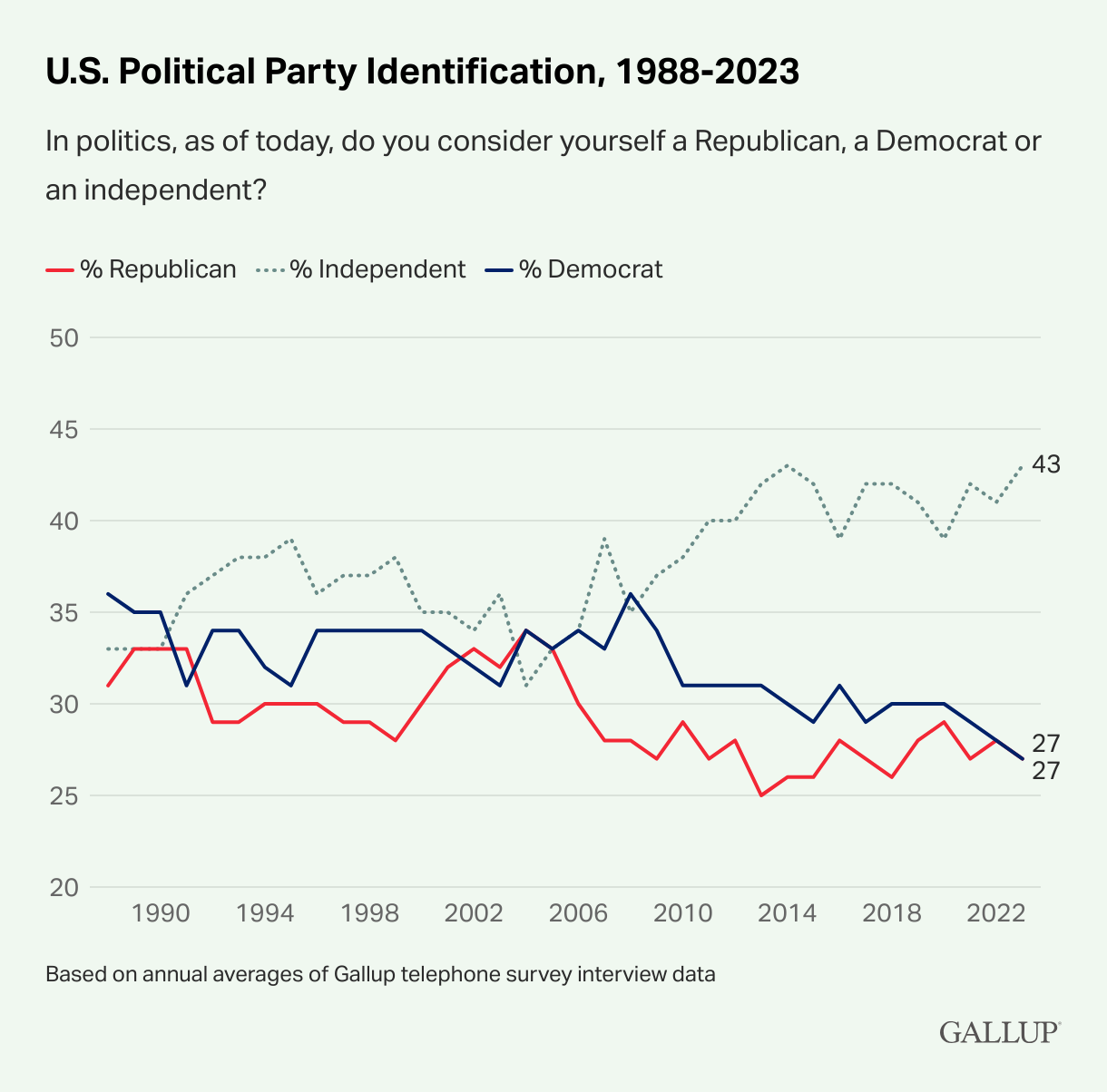No longer the “Shining City Upon a Hill” as President Reagan proudly claimed in his parting note in 1989, the U.S. has been demoted from a “full democracy” to a “flawed democracy” – an indictment of the so-called uniqueness of the American project. The demotion occurred in 2016 with the election of Donald Trump. The Economist Intelligence Unit (EIU) uses five categories for its annual report card on democracy. The U.S. performed poorly (see EIU Democracy Index) in two categories: Political Culture (6.25 out of 10), and Functioning of Government (6.43 out of 10).
Political culture comprises political polarization. It includes perceptions of democracy, political leaders (including whether a strong leader is needed to “bypass parliament and elections”), and perceptions of military rule. 32% of Americans subscribe to authoritarianism as the best solution for governance in the U.S. Political culture cannot be separated from the functioning of government category, which includes mistrust of public officials and “public confidence in political parties.” 83% of Americans believe that public officials “don’t care what people like them think.” George Washington despised political parties. Perhaps he sensed something early on. What is clear, however, is that half of Americans do not feel represented by the two-party system. Indeed, 43% of U.S. adults identify as an independent.
What, then, should the doctor prescribe for America’s woes? Could this desire for authoritarianism be the symptom of the failure of the two-party system to represent American voters?
Of course, this erosion of U.S. democracy predates Mr. Trump. We see declines in the U.S. democracy score starting in 2009 (the year after the Great Recession). Some argue that the start of political polarization can be traced back to the 1980s under Ronald Reagan. The good news is that the U.S. scored high on “electoral democracy” indicators including Political Participation (8.89 out of 10), and Electoral Process and Pluralism (9.17 out of 10). This means that most Americans are voting in elections that are legitimate (despite Mr. Trump’s unsuccessful attempt to overturn the results in 2021). There was a record turnout of 66% during the 2020 presidential election; the highest rate in more than a century. This raises the following question: Are elites, such as Donald Trump, driving the so-called “populist wave” in the U.S.; or vice versa?
Writing for Foreign Affairs, Larry Bartels argues that populist political elites represent xenophobic, conservative minorities that scapegoat immigrants. Press coverage tends to exaggerate the populist threat, Mr. Bartels insists. In the case of the U.S., Mr. Bartels writes, voting patterns reflected cultural anxieties related to race and ethnicity, not economic concerns. Morris Fiorina wrote that polarization is indeed a key issue in the U.S., but that polarization is driven by a two-party system that does not represent a majority of Americans.

Hi Jamieson! Your piece excellently describes the current shifts in American politics. I can’t help but keep thinking about that one statistic you outlined: that 32% of Americans find authoritarianism as a solution to our issues in the US. This is a particularly frightening figure, and I’ve noticed there is a common trend of authoritarian favor among voters in several countries after reading our peers’ posts. For instance, in Germany, the AfD is gaining traction among voters and rising to be one of the most popular parties. Long perceived as xenophobic and extremist, more voters, and political figures, are starting to align themselves with the AfD. I wonder what can be done to maintain democratic values while limiting the power of extremist and authoritarian groups, seeing that many of these groups are not only gaining the peoples’ favor but also the approval of other authoritarian leaders.
Jameison, your post does a fantastic job linking the modern American political situation to the demotion of the United States to Flawed Democracy. Your question asking whether elites are a cause or symptom of the “populist wave” is especially poignant and deserves the bold font you gave it. To add complexity to the question, I would consider separately examining the impacts of the new vs old school elites. Perhaps some groups of elites are a cause of the populist wave (especially those who control consolidated media companies and social media outlets) while others might act in response to it. Seeing as the timelines of media consolidation (Telecommunications act of 1996) and and explosion of social media (similar time) begin only ten years before your graph on US Democracy scoring, a potential nuance in our understanding of elite behavior would intertwine in other points in your post as well.